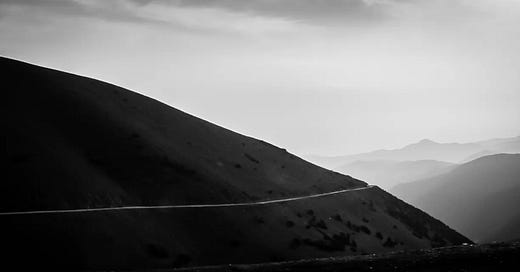Fear is the mind-killer. Fear is the little death that brings total obliteration.
I will face my fear. I will permit it to pass over me and through me.
And when it has gone past me I will turn to see fear’s path.
Where the fear has gone there will be nothing.
Only I will remain.
—Paul Atreides (Frank Herbert, Dune)
I had a friend once. His name was Rob.
He wasn’t old enough to drink when I first got to know him. But even then, there was something about him—quiet confidence, a sharp mind, and the kind of loyalty you don’t forget.
We all used to joke,
“I want to go out ankle-deep in shell casings.”
Since we were young, that was our naive way of saying,
“If it’s my time, let it be in the fight, doing something that matters.”
Rob didn’t go out ankle-deep in brass that day in Afghanistan. Probably because he was moving too fast. Too focused. Too committed.
That’s my guess. I wasn’t there.
He ended up saving his team and earning the Medal of Honor. He just couldn’t save himself.
There is zero chance he regrets that.
I do wonder what went through his mind.
My gut says—not much. He just did what he thought was right.
I’m sure he was scared—but how much time did he have to think? I doubt he gave himself any time for fear. He was too busy doing the right thing.
I wonder if he had a moment like you see in the movies—where everything slows down, and he knows exactly what he’s doing…and knows it’s the end.
After the fact, we call him courageous. And he was. But I don’t think he’d say that.
He was just being himself—being the kind of teammate you’d want next to you in a firefight.
And thinking about Rob made me realize something.
We talk a lot about intelligence—IQ.
We built tests to measure it.
Built systems around it. For a while, it defined success.
Then we started talking about another kind of intelligence: EQ. Emotional intelligence. The ability to understand yourself and others. To stay grounded. Connected.
Both matter.
But I think there’s another kind worth naming.
Courage Intelligence (CQ)
Maybe some people are more courageous by nature.
Or maybe some are just better at recognizing fear, putting it in the right bucket, and choosing to act when it matters.
My conclusion:
Fear is universal. Courage is learnable.
And how we manage the gap between fear and action—
that space between knowing what’s right and doing it—
can be the difference between realizing our potential… or not.
Courage isn’t forced—it’s found as we walk our path with intention. It’s not spontaneous—it’s practiced, imagined, internalized.
Here’s a framework:
The Courage Path
1. Respond, Don’t React
Understand when fear is present.
“I’m afraid of ___—now let me think, not just react.”
2. What’s Real?
Separate real threats from imagined ones.
“What is true, and what am I making up?”
3. Check Values, Consider Outcomes
Reconnect with what matters. Think clearly about what’s at stake.
“Is this important enough to act on? What’s the cost of action—or inaction?”
4. Act
Move forward with clarity. Keep your head up—fear will look for an opening.
“What story do I want to tell when I’m 80?”
This isn’t a one-time choice—it’s a path.
One you walk again and again.
Walk this path often enough, and it becomes familiar.
Fear might still visit, but it won’t lead.
With each step, your CQ grows.
That’s what Rob did—without hesitation.
Because he’d walked this path, at least in his mind, many times before.
His values ran so deep,
there wasn’t time for fear to wedge itself
between him and what was right—for him.
He won’t be here to tell the story when he is 80,
but because of him, others will.
We all have a path to walk.
Take care. Be good.
—Kelly














Share this post